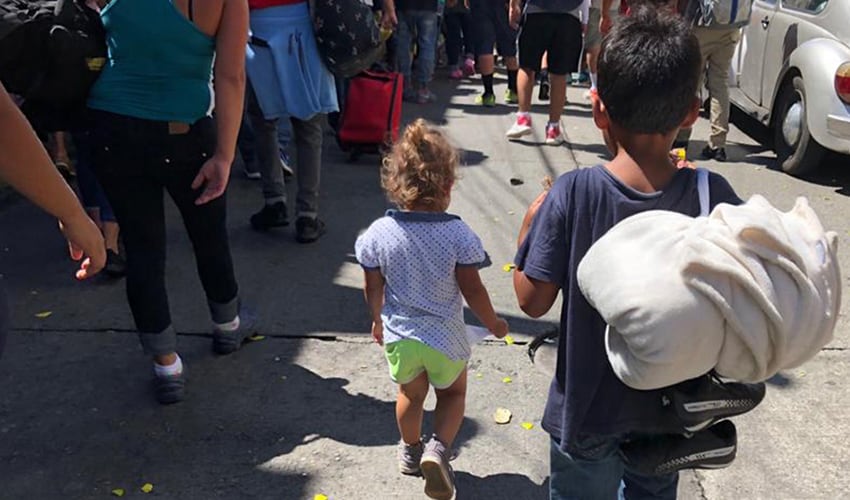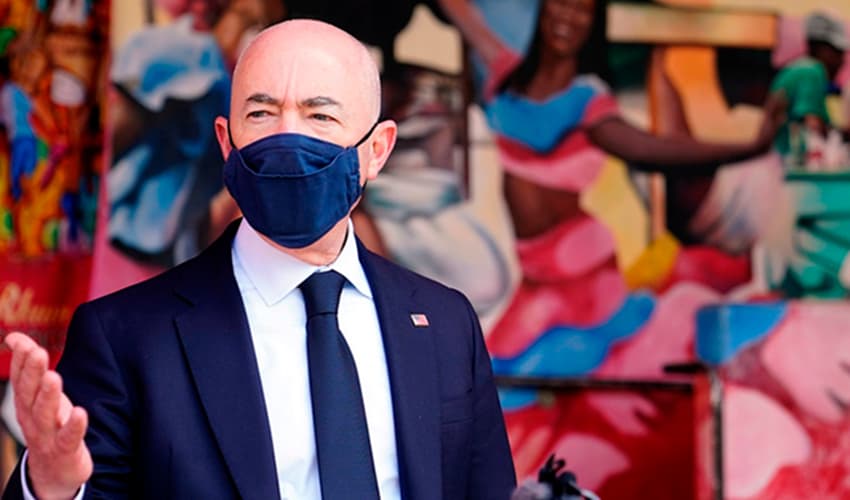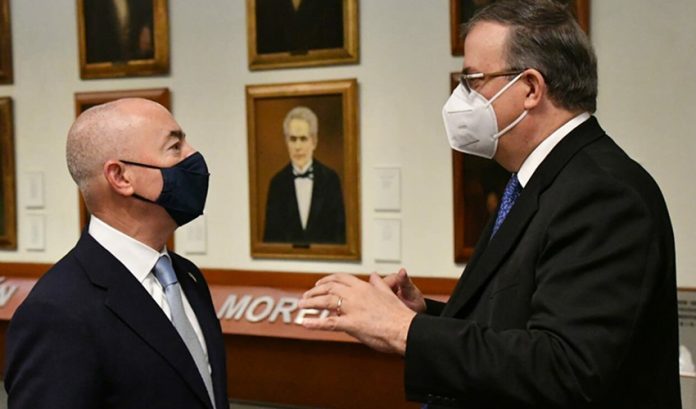A week after signing a pact to work together to address the lack of economic opportunities in Central America, Mexico and the United States agreed on Tuesday to strengthen measures to reduce illegal migration in the region.
United States Secretary of Homeland Security Alejandro Mayorkas met with Foreign Minister Marcelo Ebrard, Security Minister Rosa Icela Rodríguez and other Mexican officials in Mexico City to discuss joint efforts to curb irregular migration through Mexico and into the U.S.
Mayorkas told a press conference that both countries are working to stem the flow of migrants, which has recently increased as large numbers of people flee poverty and violence in countries such as Guatemala, Honduras and El Salvador to seek asylum in the United States.
Asked about the details of the agreement Mexico and the U.S. have reached to curb such migration, the secretary responded:
“We have challenged one another with respect to what more can each of us do to address the level of irregular migration that has persisted for several months. It’s not just a question of the U.S. asking of Mexico, it’s a matter of what we both can do.”

Mayorkas echoed remarks made by United States Vice President Kamala Harris in Guatemala last week, reminding potential migrants that the U.S. government’s message to them is “do not come” and emphasizing that the southern border is not open to irregular migration.
Harris, who visited Mexico on June 8 and witnessed the signing of a memorandum of understanding to establish a strategic partnership to address the lack of economic opportunities in northern Central America, later softened her language, saying that she was committed to ensuring that the U.S. government provides a “safe haven for those seeking asylum.”
Critics warned that the government’s mixed messages could cause yet more people to flee their home countries to seek asylum in the United States, where President Joe Biden’s arrival in the White House, and the scaling back or abolition of former president Donald Trump’s hardline migration policies have encouraged many migrants to make the perilous journey north.
Mayorkas stressed that the United States government is working on alternatives to illegal migration that he described as “legal pathways” into the U.S. He cited programs that grant temporary work visas to foreigners and emphasized that the U.S. is committed to combatting violence, corruption and a lack of economic opportunities in countries from which large numbers of people are fleeing.
“We are devoted and dedicated to bringing different types of relief,” he said.
Ebrard also cited the need to attend to the root causes of migration, most of which have persisted for years despite efforts by the United States and Mexico to address them through investment and aid programs.

Notwithstanding the large number of migrants transiting Mexico to reach the United States, the foreign minister said the Mexican government’s greatest concern is the closure of the northern border to nonessential travel, a measure put in place early last year to reduce cross-border flows amid the coronavirus pandemic.
Ebrard said the restriction has had a negative economic impact and upset the day-to-day lives of border communities. With a view to reopening the border to nonessential travel as soon as possible, the pace of the Covid-19 vaccine rollout will be increased in border cities and towns, he said.
To that end, 1.3 million Johnson & Johnson single-shot vaccines donated by the United States will be used to inoculate residents of northern border municipalities aged between 18 and 39. The objective, Ebrard said, is to reach as quickly as possible vaccination rates in border cities that are similar to those in cities in the United States.
The foreign minister said that Mayorkas was very receptive to the plan and that they reached an agreement to establish a binational working group whose aim will be to accelerate the full opening of the border. However, no target date for that to happen was set.
Ebrard wrote on Twitter that Mayorkas indicated that facilitating trade, tourism and cross-border travel was his priority, adding that “we were in agreement” on the issue.
The homeland security secretary said the United States is not considering making so-called vaccine passports a requirement to enter overland from Mexico, where the percentage of vaccinated people is currently much lower than in the U.S.
With reports from El Universal and Reuters
